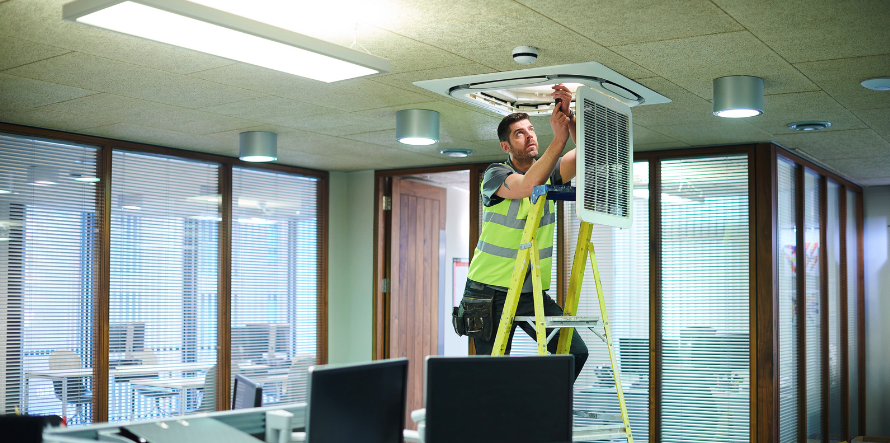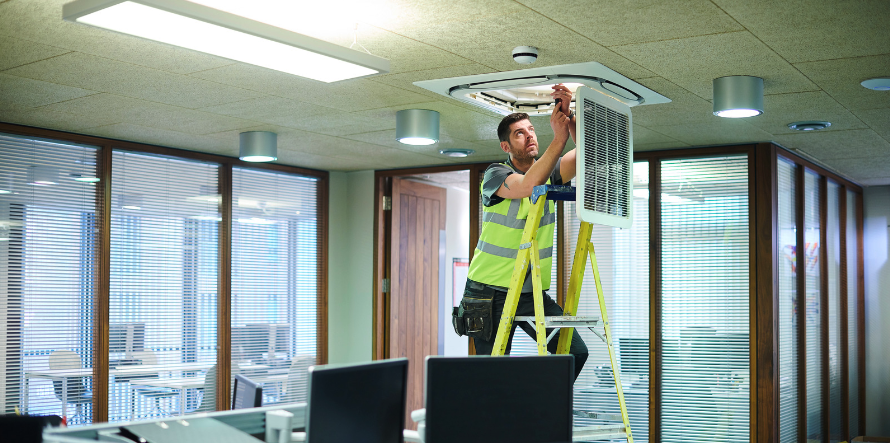As any commercial real estate (CRE) property owner can attest, an effective facilities management strategy hinges on the expertise and capabilities of its facility manager or FM team. Facilities managers play a pivotal role in ensuring that your building or facility operates efficiently and effectively, directly impacting the overall success of your organization.
Facilities managers often oversee the FM team and the day-to-day operations of commercial properties, which is undoubtedly a complex endeavor. Prioritizing work orders, responding promptly to emergencies, managing an effective preventive maintenance program, and keeping the team motivated are all integral to achieving success. The most effective facility managers will also engage in proactive, long-term capital planning to ensure the continuous improvement and sustainability of your property.
Ultimately, an effective facility manager ensures that buildings are secure, welcoming, comfortable, environmentally friendly, and efficient, making them an invaluable asset to your team.
But finding the right fit for your organization can be difficult. To help, we’ve rounded up several top traits of a good facilities manager or FM team, and why this role is so important to organizational success.
1. Strategic, Proactive Planning Skills
Proactive and strategic planning skills are essential for facilities managers and FM teams to ensure cost effectiveness, long-term sustainability, efficient asset management, risk mitigation, and improved operational efficiency. By taking a proactive approach, they can stay ahead of potential issues, maximize the facility's performance, and contribute to the overall success of the organization.
Specifically, a strategic mindset is crucial for facilities managers to:
- Reduce reactive maintenance, and anticipate and address maintenance and repair needs before they become major issues.
- Efficiently manage assets across the building and its equipment to ensure timely maintenance, repairs, and replacements.
- Maximize the lifespan of equipment, minimize downtime, and avoid unexpected breakdowns that can disrupt operations and incur costly emergency repairs.
- Optimize resources, streamline processes, reduce waste, and improve operational efficiency.
>> Related Resource: Reactive Vs Preventive Vs Predictive Maintenance: What's the Difference?
2. Strong Communication Skills
Facilities managers must be able to communicate effectively with clients, tenants, vendors, contractors, and other internal stakeholders. Effective communication is key to ensuring that you as the building owner and other stakeholders are informed and aligned.
Facilities managers must often communicate complex information or updates to stakeholders who may not have a technical background. They must translate technical jargon into clear, understandable language, ensuring stakeholders grasp the importance, impact, and implications of various facility-related decisions.
As a building owner, a facilities manager with strong communication skills will help you interpret critical information to make the most cost effective and beneficial decision for your building and tenants.
3. Attention to Detail
A facilities manager's role involves managing work orders, and overseeing the maintenance and repair of the building or facility. By paying close attention to details, they can identify subtle signs of wear and tear, equipment malfunctions, or potential issues that may escalate if left unaddressed. This attention to detail allows them to take proactive measures, such as scheduling preventive maintenance or repairs, to prevent small problems from turning into larger, more costly ones.
Attention to detail also plays a significant role in managing costs effectively. By carefully reviewing invoices, quotes, and contracts, facilities managers can identify any discrepancies, overcharges, or unnecessary expenses—translating to bottom-line impact for you. They can also negotiate favorable terms with vendors and contractors, ensuring that they receive the best value for the organization's budget.
4. Problem-Solving Skills
When it comes to building or facility management and upkeep, unexpected issues and challenges will arise at some point. A facilities manager or FM team must be able to quickly identify problems, assess the situation, and devise effective solutions. Problem-solving skills enable them to address issues promptly, minimizing disruptions to operations, and preventing further complications.
Problem-solving skills also come in handy when optimizing resource allocation. An effective facilities manager will consider various constraints such as budgetary limitations, time constraints, and availability of personnel or equipment. By evaluating different solutions and their potential impact, facilities managers can allocate resources effectively, ensuring that the most efficient and cost-effective approach is taken.
5. Technical Knowledge
Effective facilities managers must have a strong understanding of technical systems and equipment to effectively manage the building or facility. This includes staying educated on new technologies that can further provide cost savings for your organization.
Technical knowledge also helps facilities managers and FM teams to:
- Effectively manage systems and equipment, and ensure optimal performance.
- Understand the functioning, operation, and maintenance requirements of all assets across the building or facility.
- Identify and troubleshoot issues, including equipment failures or malfunctions.
- Evaluate the feasibility and benefits of adopting new systems or equipment.
- Comply with necessary regulations and safety codes.
- Maintain a safe working environment for themselves and tenants across your building.
6. Flexibility and Adaptability
Facilities managers operate in dynamic environments where circumstances can change rapidly. Effective managers are adaptable to accommodate evolving needs, such as changes in occupancy, fluctuating space requirements, or shifts in organizational priorities. Adapting to these changes ensures that the facility continues to meet the organization's evolving demands effectively.
Knowing that technology plays an increasingly vital role in facilities management, the best managers and FM teams will stay updated with new technologies, such as building automation systems, energy management tools, or maintenance software. Being adaptable allows them to embrace and implement new technologies that can enhance operational efficiency, improve sustainability, and streamline processes.
Take the Facilities Management Assessment
Well-executed facilities management not only reduces operational costs and strategically minimizes large long term capital expenditures, but also improves organizational culture.
How well are your facilities managed today?
Our free facilities management assessment is designed to help you determine the health of your facilities management function, including people, process, technology, and strategy. In 10 minutes, you will receive an email summary of your results, along with resources to help you optimize your facilities management approach.








